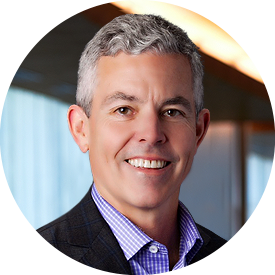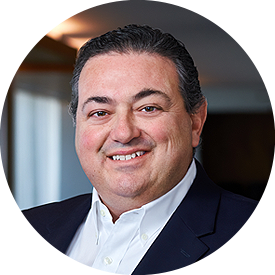In the US, high blood pressure (hypertension) and diabetes are the leading causes of end-stage renal disease or kidney failure. In fact, 40% of people with stage 4 CKD do not even know they have chronic kidney disease. Managing chronic kidney disease (CKD) and its associated complications may be possible through early intervention, such as managing risk factors and treating the disease to slow progression.
Key Points:
- More than one in seven (37 million) American adults is estimated to have CKD.
- While there is no cure yet for CKD, treatment options and guidelines exist to help slow disease progression and improve quality of life.
- Disease progression of CKD may be slowed by implementing a treatment plan and making healthy lifestyle changes.
Chronic Kidney Disease Overview
Chronic kidney disease is characterized by progressive, permanent damage to the kidneys, reducing their ability to function correctly. End-stage kidney disease (kidney failure) may occur if the damage is severe or left untreated.
The leading causes of chronic kidney disease are diabetes and hypertension (high blood pressure). Other conditions, such as inherited diseases, glomerulonephritis, autoimmune diseases, and kidney or urinary tract abnormalities, may also contribute to the development of CKD.
Most people may not experience any symptoms until their CKD is in an advanced stage. However, if symptoms do present, you may notice that you:
- Need to urinate more often
- Have less energy and feel fatigued
- Have a poor appetite
- Experience muscle cramping at night
- Have trouble concentrating
- Have swollen ankles or feet
If your healthcare provider suspects CKD, a blood or urine kidney test will be performed to check your kidney function.
There are five stages of kidney disease:
- Stage 1: Glomerular filtration rate (GFR) is 90ml/min and higher. The kidneys still function relatively well, but there are signs of mild damage.
- Stage 2: GFR is between 60 to 89ml/min. There are more signs present of mild kidney damage.
- Stage 3 is the “middle stage” of kidney disease and is split into two sub-stages based on your eGFR. During stages 3a and 3b, your kidneys have mild to severe damage, with complications such as anemia and high blood pressure starting to present.
- Stage 3a: eGFR is between 45 and 59 (mild to moderate damage).
- Stage 3b: eGFR is between 30 and 44 (moderate to severe damage).
- Stage 4: GFR is between 15 to 29 ml/min. The kidneys are now severely damaged and have poor function.
- Stage 5: GFR is less than 15ml/min, and the kidneys are considered failing. You may need to start dialysis or receive a kidney transplant.
How is Chronic Kidney Disease Treated?
CKD is a complex disease. However, many steps may be taken in early-stage CKD to help preserve kidney function and delay disease progression. Treatment options generally consist of measures to help reduce complications and control signs and symptoms.
Treating complications or underlying conditions may include:
- High blood pressure medications to help lower blood pressure. Angiotensin II receptor blockers or angiotensin-converting enzyme (ACE) inhibitors are commonly used medications.
- Medication may be administered to treat anemia, such as supplements of the hormone erythropoietin to help produce more red blood cells.
- You may be prescribed calcium and vitamin D supplements to help protect your bones.
- A diet lower in protein may be recommended to help minimize the number of waste products in your blood.
- If you have high cholesterol, you may be prescribed medications called statins to help lower your cholesterol, therefore decreasing the risk of heart disease.
- People who have CKD may experience retention of fluids. Diuretics may be prescribed to help maintain the balance of fluids in your body.
Treatment for end-stage kidney disease
If your CKD progresses to where your kidneys can no longer clear out the extra fluid and waste products on their own, you may need a kidney transplant or dialysis.
Dialysis is the process of artificially removing waste products and extra fluid from the blood when the kidneys can no longer. Dialysis options include hemodialysis and peritoneal dialysis.
A kidney transplant involves surgically replacing one of your diseased kidneys with a healthy kidney from a donor. Transplanted kidneys come from either a living or deceased donor. Your nephrologist and care team will advise on further treatment options to help ensure that the transplant is not rejected. Depending on your individual needs, dialysis may no longer be needed once a kidney transplant occurs.
Diet for chronic kidney disease
To help manage your CKD, you may need to change what you eat. A registered dietitian in your care team will help you develop a meal plan to maintain your kidney health.
The first thing that may be recommended to change in your diet is the amount of sodium and salt you consume. To help manage blood pressure, it is recommended that you should not consume more than 2,300mg of sodium per day. Sodium is a part of salt and is often found in larger quantities in prepackaged, fast, processed, or canned foods.
A lower protein diet may be recommended to help protect your kidneys. When the body processes protein, it produces waste products, which need to be removed by the kidneys. Consuming more protein than you need may result in your kidneys needing to work harder, causing more damage. It is important to talk to your dietician about the right combination and quantity of proteins (animal or plant protein) that you require.
Choose heart-healthy foods to help keep your heart healthy and reduce the amount of fat building up in your kidneys, heart, and blood vessels. Try to limit foods high in trans and saturated fats.
Other recommended diet changes for CKD may include:
- Choosing drinks and foods with less phosphorous.
- Choosing foods and drinks with reduced amounts of potassium.
- Limiting the amount and frequency of alcohol you consume.
Is Chronic Kidney Disease Curable?
There is no cure for CKD or ESRD; however, early diagnosis and implementation of treatment for CKD and any underlying causes are important when considering patients’ quality of life. Early referral to a nephrologist may be extremely important to help slow the progression of the disease. Panoramic Health provides integrated value-based kidney care to help keep patients healthy longer – at home and out of the hospital.
Once CKD is detected, it may be better managed by doing the following:
- Find healthy ways to cope with depression, anxiety, and stress.
- Control your blood pressure.
- Work with a healthcare team to monitor your disease progression and kidney health.
- Work with a dietician to develop a meal plan.
- Manage your blood glucose levels if you have diabetes.
- Take your medication as prescribed by your healthcare provider.
- Ensure that you get enough sleep.
- Aim for a healthy weight.
- Quit smoking.
- Exercise regularly.
Managing risk factors for CKD
It has been shown that people with hypertension and diabetes who manage their blood pressure and blood sugar are at a lower risk of developing CKD. Early detection and treatment of CKD in patients with diabetes or hypertension is important to potentially delay or prevent kidney failure and cardiovascular death.
Studies have shown that there may be a possibility of preventing or delaying the start of CKD in diabetic patients by treating these patients with blood pressure-lowering drugs. These drugs also reduce protein in the urine, a risk factor for developing CKD.
Panoramic Health
At Panoramic Health, we are a physician-led organization that understands chronic kidney disease is a journey requiring a multi-disciplinary team and a transformative approach. Patients may access the treatments they need sooner, resulting in early intervention, slower disease progression, reduced hospital rates, and improved quality of life.
Panoramic Health puts physicians at the forefront of care, so care decisions are made by those who understand the realities of patient kidney care. We also lead the industry with predictive and data analytics and leverage this information to provide patients with customized treatment plans based on their disease risk profile and stage.















